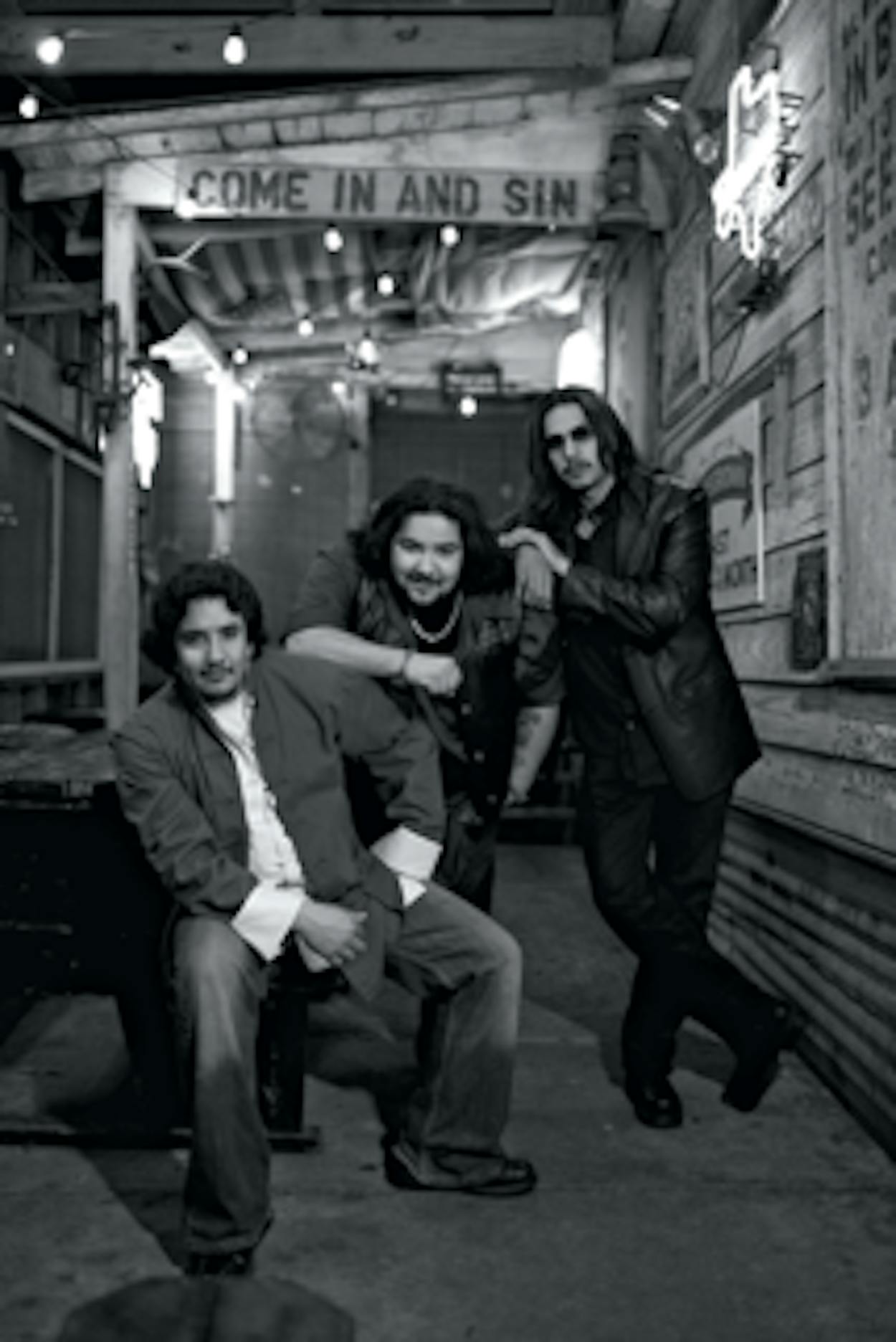Henry, Ringo, and JoJo Garza grew up in San Angelo learning about music from their father, a conjunto musician. The Garza brothers lean in a considerably more rock-oriented direction, with impressive results: Their 2004 major-label debut went double platinum, and they won a Grammy in 2005. Los Lonely Boys’ new album is titled Rockpango.
The new studio album is your first for the Austin independent label Playing in Traffic. Why did you guys leave Epic Records?
We had a contract for a certain number of records with them, and we pretty much finished that deal up. And when it came down to it, we didn’t feel like shopping ourselves around, so we just ventured out on our own. We’ve got our own imprint under Playing in Traffic, Lonely Tone Records.
You hear about bands like Radiohead and Wilco leaving the major labels to strike out on their own because they figure, once they’ve made their reputation, they can do it on their own.
Once you’ve established yourself, you really don’t have to do anything other than put out a song, you know? Then another song, another song . . . And hopefully you’ve made some friends along the way at radio and in stores to keep the river flowing.
You guys have an identifiable sound. Is there anything about the new record that differs from what you’ve done before?
There’s a song called “Road to Nowhere” that has a string quartet background, so that’s new. There’s a song called “16 Monkeys” that’s kind of off-the-wall. It’s got this early-seventies vibe, and it’s kind of like Beck in a way too.
“Porn Star” has a heavy hip-hop vibe. Who did the scratching on that?
That would be DJ Beans. He’s from San Angelo, but he was in Austin at the time that we met him.
And who’s the rapper at the end of the track?
Kush. His real name is Carlos Valdez, and he’s a friend of the family; he’s Ringo’s brother-in-law. He’s one of the first artists we hope to have on the Lonely Tone label.
It’s interesting—you guys are steeped in the rock music of the late sixties and early seventies, and when you draw on hip-hop, you draw on old-school hip-hop. I mean, you almost never hear scratching on rap songs these days. Why do you think you’re so drawn to the music of the past?
Music from the past, it’s got meaning, it’s got heart, it’s got fire. We grew up with old-fashioned rock and country—people working their butts off to make music. These days it’s a lot of computers doing the work. It’s sad to see computers taking over, because anybody can learn to work one of those things.
So that was the music your folks played in the house?
We grew up listening to the Mexican-style music that comes from our heritage, but our dad also broke away from that. He taught us the Beatles, Chuck Berry, Willie Nelson. And then we found out about Santana and Stevie Ray Vaughan and Los Lobos.
Santana had his big break more than forty years ago, and when he hit the scene, people were like, “Latin rock, wow, that’s such a cool idea.” Four decades later, people are still like, “Latin rock, wow, that’s such a cool idea.” Why is combining Latin music with rock still regarded as novel?
It’s just not so common, you know? We all know Santana, of course; we all know Ritchie Valens, who was the first Latin American rocker. But I only know a few others, like Los Lobos and us. It’s still kind of rare.
Which is amazing, given that Latin rhythms were basically the “roll” in early rock and roll. The Bo Diddley beat is a version of the clave; “(I Can’t Get No) Satisfaction” is an amped-up cha-cha-cha . . .
That’s really cool you notice that, bro; I’m not sure how many people really notice that kind of thing. We’ve been here a long time too, you know?
Have you guys done much touring in Mexico?
We’ve done a couple of shows. It’s hard to get everywhere, man. We’re going to have to clone ourselves or something.









